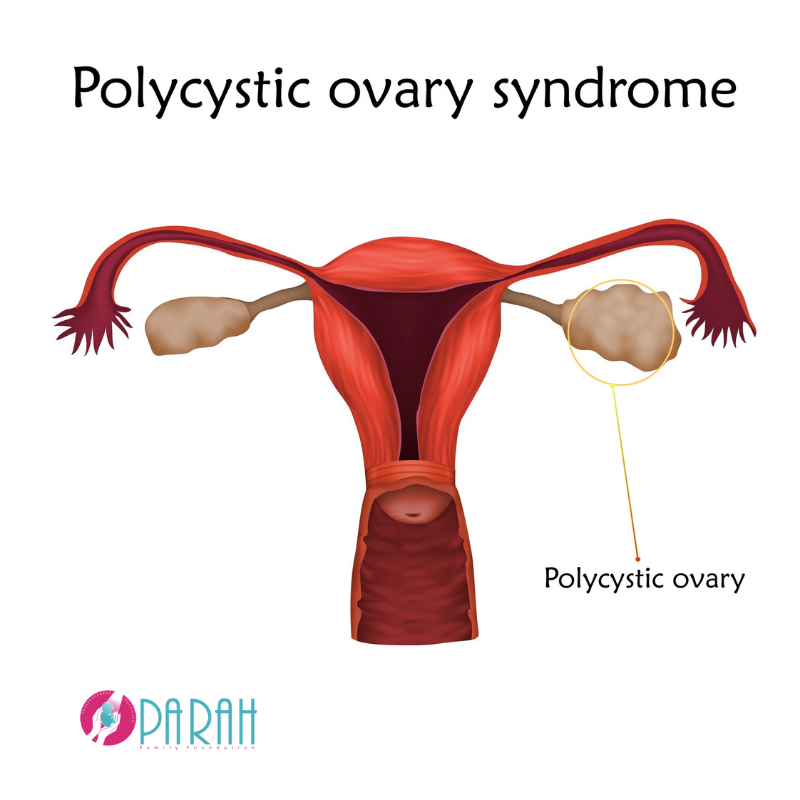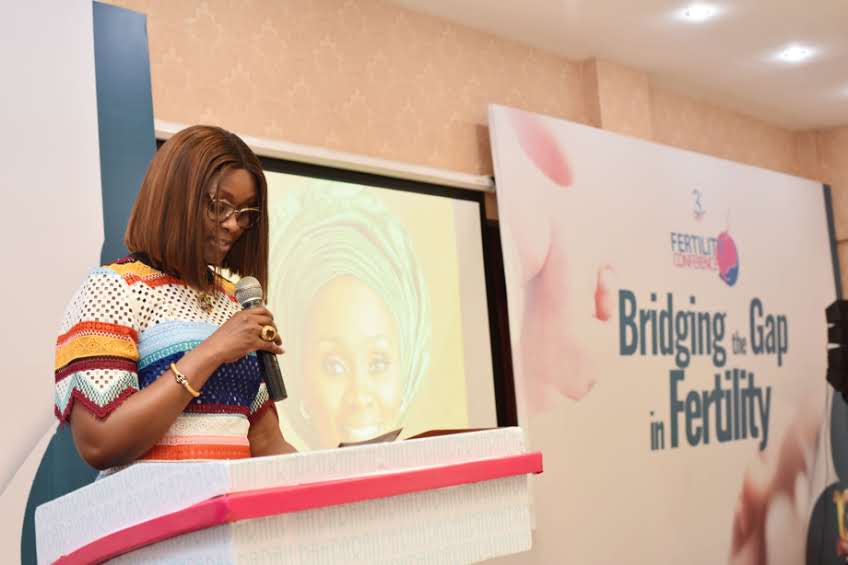Lifestyle Change Can Promote Fertility – Kemi Ailoje
Dr Kemi Ailoje is a Reproductive Endocrinologist, Fertility/IVF Specialist and the MD/CEO of Lifelink Fertility Clinic in her interview with Daily trust speaks on infertility management and stress impact on male and female infertility.
Daily Trust: What is the rate of women affected by infertility in Nigeria?
Dr Kemi Ailoje: Studies have shown that infertility rate in Nigeria is about 20 to 25 per cent.
DT: Why do women have secondary infertility and what can be done to help them?
Ailoje: The World Health Organization (WHO) describes primary infertility as a case in which the woman has never been pregnant before while with secondary infertility, a woman has been pregnant before, or had a baby but cannot conceive again. There are emotional issues attached to secondary infertility. Sometimes, a woman who has one child wants more children.
The Nigerian culture puts pressure on women to have a child, and when there is one, they want her to have more.
The general rule is that if a woman is 35 years old or under and has been trying to conceive for one year without getting pregnant, or if a woman is over 35 years and she has been having unprotected intercourse for six months (taking into cognisance her ovulation), or when a woman is in her 40s, she definitely needs advice from a fertility specialist.
Many will wonder why a woman should experience secondary infertility. Several factors influence that. As a woman is growing older, her eggs are equally ageing. She might experience complications of the reproductive organs; her husband could have low sperm count, she could experience lifestyle changes leading to weight gain and obesity, there could be new medical conditions like diabetes and she could have had prior surgery in the previous pregnancy.
Complications from the previous pregnancy could cause infection, which prevents another conception. Women could have children at any age during their reproductive years; even post-menopausal women can have children, using Assisted Reproductive Technology. If they don’t have the desired number of children, there are various options for them.
A woman can do Intrauterine Insemination (IUI) /Artificial Insemination if her tubes are still open and if she still ovulates. In Intrauterine Insemination, the eggs are not brought out. Rather, the sperm is gently placed inside the woman’s womb to increase the chances of conception.
Sometimes, timed intercourse, dependent on the monthly ovulation with Intrauterine Insemination, is a possible technique to have babies, whether as a first or second timer.
DT: Which is the most prevalent between primary and secondary infertility, and who is to be blamed for infertility?
Ailoje: Studies suggest that primary infertility is more common than secondary infertility. A lot of studies have also shown that the male factor accounts for 40 per cent of the cause of infertility, female factor 40 per cent, unknown factors 10 per cent, unexplained 10 per cent. It is, therefore, a 50-50 factor that prevents a couple from not having a baby.
Pregnancy occurs when a man with good sperm parameter meets with a woman with good quality eggs at the period of ovulation. Poor quality sperm may be a reason why there is no pregnancy. The fact that a man is ejaculating does not mean he has sperm cells. Seminal fluid analysis is the test done to determine the quality of the sperm. There are cases where sperm is low in count, motility (activity) and morphology (forms) and some may not have sperm cells in their ejaculate.
No sperm means the man may have quite a large volume of ejaculate but there is no sperm cell to form a baby inside it. You can imagine if someone digs the ground, put no seed and later covers it. Nothing will come out unlike someone who digs the ground, plants a seed, covers and waters it. With time, the seed will grow.
The quality and quantity of eggs in women diminishes with age, hence women’s age may be a factor for infertility. That’s why it is recommended that women past the age of 35 seek help after one year of unprotected timed, regular intercourse if they don’t get pregnant. Tests such as know-your-fertility-status profiling can be done even before marriage.
Then, both a man and woman can know if they have fertility challenges and if they will need assisted reproduction to help them become parents, instead of just waiting and passing blames. In Nigeria, some men don’t accept they could be the problem; usually, the woman is concluded to be the problem.

Couple facing a fertility challenge should go for counselling together because it takes two to tango. Neither a man nor a woman can have a baby alone. A man’s sperm and a woman’s egg must meet, whether physically or in the laboratory, to form an embryo and have a baby. For approximately one in five infertile couples, the problem lies solely with the male partner. It has been established that one in 20 men have low sperm count. Only about one in 100 have no sperm cell in them. Low sperm is more common than no sperm.
Common causes of infertility in men are medical. Some of them have a chromosomal defect, which is how they were born. Other causes are trauma or injury to the testes, previous surgery such as repair of the hernia, or some other surgery like vasectomy to clip the sperm tube. Also, certain medications such as those for cancer treatment, including radiation, can affect men.
Men are also affected by environmental factors such as exposure to toxins, sitting for too long over long distance journeys and wearing of tight pants. Asides the environmental factors, lifestyle also has its effects, such as heavy smoking and alcohol consumption, emotional stress and being overweight.
Many of these can be corrected by lifestyle modification. Fifty per cent of infertility is caused by men and the other 50 per cent by women. In infertility management, we cannot point fingers. As a couple, no one should point fingers. They should bear the burden together.
As a couple, you are both on zero point or 100 points together. For some couples, infertility has brought them together because they have gone through a lot together trying to start or enlarge their families. Low sexual desire, trouble maintaining erection, and low ejaculation are signs that men should watch out for. They need to visit the fertility clinic to know what the issue is and what the implications of these signs are.
Some men claimed they had children in previous marriages but couldn’t have other children, so they blame it on the woman. Someone who had had good sperm production before may not have it anymore if he is exposed to heavy environmental toxins such as lead, staying close to a mast and overheating the testes by sitting for long hours.
Working on the laptop (on the lap) for a long time, sauna and steamed bath all make the sperm to become very low. If such men change their lifestyles, they may get a good result.
DT: What are the options for a man who has no sperm cell?
Ailoje: In some men, the reason their semen sample may not contain sperm cells may be due to obstruction of the channel of sperm flow. The treatment option is to take sperm from the testes; just like when water isn’t running, we can take water from the tank.
Sometimes, some tanks do have filter, which may determine if we can get water from the tank or not. Taking sperm from the testes is a medical procedure called TESA/TESE.
Some low or no sperm is caused by obstruction; some are non-obstructive. Some don’t even exist, such that there is no testes that can even form the sperm cell. That is the more reason a couple needs to be checked by a specialist to determine what could be wrong.
DT: Stress is common among couples. Is there anything that can be done about stress so it won’t continue to affect fertility?
Ailoje: Every individual needs to find natural stress reduction techniques. When someone does not have a peaceful sleep at night, the person will wake up stressed in the morning. When a woman is always doing all the house chores every day, she will be stressed; she is the cook, driver, laundry woman, mother, everything.
Some things need to be delegated and all she does is supervisory. Stress can be reduced by just planning how the day will be like with the rest of the family. Cook some things over the weekend and store them. When someone is stressed, he/she will look older. When we grow older than we should be, longevity is reduced. Some say Africans don’t have a long life span. That is not true.
The truth is that the stress here is much. What makes life better in developed societies is that they are more organised with better healthcare and standards of living. Employers must ensure their employees go on vacation: some employees who may want paid leave must be compelled to go on a break. Some go on leave and use it for more hustling.
That should not be the case. When they work tirelessly to get money, they may end up spending the same earnings to look after their health in various hospitals.
DT: What is the price range for fertility treatment in Nigeria?
Ailoje: The initial consultation is free. When a doctor has examined the patient and knows what needs to be done, then the doctor will outline treatment plan.
‘How much will I pay?’ is affecting many people and preventing them from seeking help. What is most important is about knowing the fertility status of a couple and preparing for the future.
That should be topmost on the list. I will advise every couple to go for fertility profiling to know their status. If a woman knows that in her family, there is a history of early menopause, she will plan to have children earlier. Health is the right of a human being and it needs planning. Asides specialist hospitals, there are general hospitals with specialists who are doing good work for free.
But some people won’t go there with the thought that they will spend the whole day there. There are also facilities in government hospitals, so a couple need not come here for IVF before they can get help.
A regular doctor in the public hospital can advise a woman on her ovulation and simple medications to use, and if it is not working, he/she will refer her to Advanced Reproductive Technology centres like ours. waters it. With time, the seed will grow.
Source: Daily Trust




